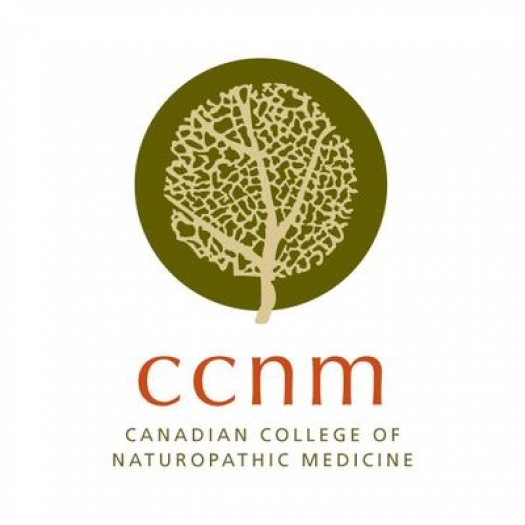
.
Dr. Abram Hoffer, MD, PhD, (1917 – 2009) was an innovative and pioneering scientist and psychiatrist who developed the first evidence-based nutritional approach to support recovery among patients with psychotic episodes and schizophrenia.
As a tribute to his decades-long contributions as a psychiatrist and clinician researcher, the Canadian College of Naturopathic Medicine, with the generous support of orthomolecular medicine, is pleased to announce a Call for Papers:
All eligible papers must focus on an aspect of orthomolecular treatment in the provision of patient care according to the submission guidelines on the CCNM website. The winning paper will receive a $1,500 prize, will be featured at the upcoming Abram Hoffer Lecture Series event, to be held at CCNM in the fall of 2018, and will be published in the Journal of Orthomolecular Medicine.
.
Abram Hoffer Lecture Series Award 
We welcome submissions from the naturopathic community, including students, interns, and naturopathic doctors.
.
Submission Guidelines
.
Please do not submit material that has been previously published and/or is being considered by another publication. Manuscripts submitted for consideration of the award should be emailed to:
Dr. Sasha Tahiliani, ND (Coordinator, Continuing Education, CCNM)
Email: stahiliani@ccnm.edu (Subject: ‘Submission for Abram Hoffer Lecture Series Award’)
All eligible submissions will be subjected to a review process by an expert panel comprised of:
– Dr. John Hoffer, MD, PhD (Professor, Faculty of Medicine, McGill University)
– Mr. Steven Carter (Director, International Society for Orthomolecular Medicine)
– Dr. Jonathan Prousky, ND (Professor and Chief Naturopathic Medical Officer, CCNM
– Dr. Bob Bernhardt, PhD (President and CEO, Canadian College of Naturopathic Medicine).
The panel will rank and then choose the winning paper among all eligible submissions. The award will be given to the author at the Abram Hoffer Lecture Series event in the Fall of 2018. The winning submission will be published in the Journal of Orthomolecular Medicine.
.
Possible Submissions
All submissions must have an exclusive orthomolecular focus or will not be eligible for consideration of the award. Orthomolecular medicine is defined as the therapeutic use of substances that occur naturally in the body. Originally defined in the context of treating and preventing psychiatric diseases, the intent of orthomolecular therapy is to
provide the optimal molecular environment for the brain and other tissues by altering the intake of nutrients such as vitamins (and their metabolites), minerals, trace elements, macronutrients, as well as other naturally occurring metabolically active
substances.
– Original Research
Original research manuscripts will be considered. Such articles are papers that report clinically relevant investigations or observations. The abstract should be structured , the text should not exceed 5,000 words, and there should be approximately 20 to 40 references. Figures and tables are encouraged and should be included where possible; however, data should not be repeated in both a table and a figure and accompanying text need not reiterate the information provided in tables and figures.
– Brief Reports
Brief reports are condensed articles with a focused message. They should include a brief abstract of no more than 200 words, text of no more than 1500 words, 5-15 references, and two tables or figures.
– Case Reports/Series
Case reports provide a summary of a single case or several cases and give a concise review of the literature. Case reports should present unusual aspects of common problems or novel perspectives upon, or solutions to, clinically relevant issues. They should include a brief abstract of no more than 200 words, text of no more than 3,000 words, and there should be approximately 10-30 references.
For further advice on writing detailed case reports, please see the following helpful links: http://www.bsaci.org/professionals/RCPhow_to_write_a_clinical_case_report.pdf
or http://japi.org/april_2015/09_aow_writing_case_report_contributing.pdf.
– Synthesis Papers
We welcome articles of an academic nature that are educational. We also welcome articles that may be hypothesis generating and may create dialogue within the readership. They should include a brief abstract of no more than 200 words, text of no more than 3,000 words, and there should be approximately 10-30 references.
– Review Articles
Review papers provide a synthesis of topics related to clinical aspects of orthomolecular medicine. The text should not exceed 5,000 words and have an abstract that does not exceed 200 words. Review papers can be written as focused systematic reviews or more broadly as narrative reviews.
– Viewpoint/Opinion Pieces
Viewpoints are somewhat review in nature; however, they are designed to provide an argument to convince the reader. The text should not exceed 2,000 words and have an abstract that does not exceed 200 words. This type of narrative paper presents the opinions of an author or authors rather than providing a balanced literature review or new experimental data.
– Educational Articles
Educational articles are written for a broad audience in order to provide specific instructions on how a specific research methodology can be used or how to best employ a therapy. They should include a brief abstract of no more than 200 words,
and text of no more than 3,000 words.
.
Additional Guidelines – www.ccnm.edu/abramhoffer


